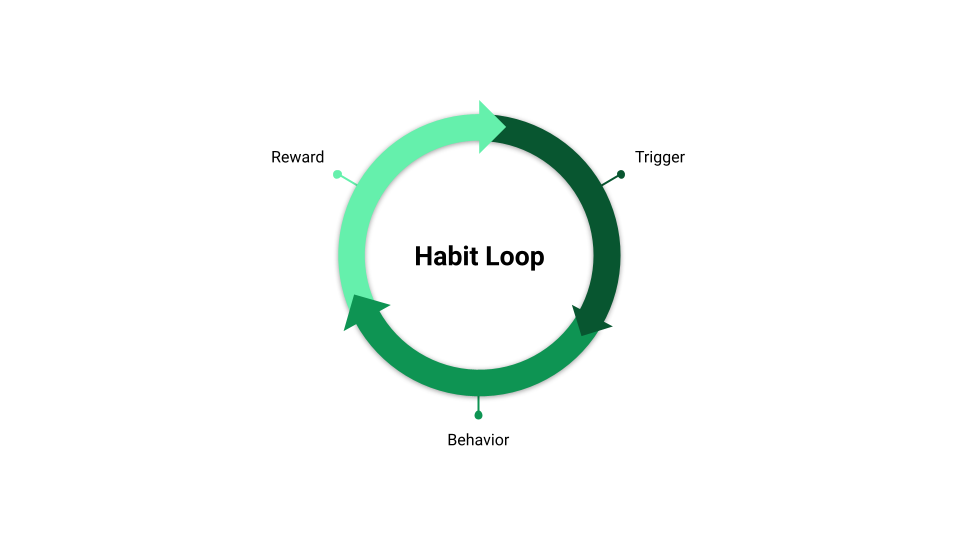What’s the big idea?
More than ninety-nine percent of the choices you’ll make in your life are ordinary everyday decisions.1 What mattress should we buy? Where should we go for vacation? What will I have for dinner? These are choices that aren’t permanent, irreversible, or with big, immediate impacts. They are important, just not right away.
Small, easy changes to your "default settings" affect your life more, with much less effort, than improving on "Important" decisions. - Why? 1. The "Important" decisions already get your full attention. 2. Following a good decision-making process gives you outcomes that are hard to beat. 3. Small changes to the "Everyday" ninety-nine percent of choices will have more effect over time than changes to the "Important" one percent.
Your “Everyday” choices are driven by habits and emotions, not logical reasoning.
Think of your emotions and habits as “Default Settings”. Imagine a picture of them as an elephant. 2 This is your subconscious mind.
Then picture the logical part (conscious reasoning) of your mind as a small monkey riding the elephant. As long as the elephant is happy, the monkey can gently suggest where it should go.
However, if the elephant wants something else…
Small changes to make my “Default Settings” better can have a big cumulative impact.
Why does it matter? - Positioning
Good habits and “Rules of Thumb” improve your positioning.
“Positioning” means your starting point. What position are you in at the start of each decision? A good starting position helps get good results. For example: Having great health, money, education and networks of friends makes it much easier to succeed than starting with poverty, malnutrition, or other disadvantages.
“Resources” means the resources you can bring to bear, whether that’s skills, education, energy, friends and their contributions, money, time, or other resources.
“Luck” means random chance. It is the combined interactions of everything affecting your results.
Positioning + Resources + Luck = Results → Always be improving your position
You have no control over random chance, but having more resources and better positioning helps improve your results. It follows that you should always be improving your position.
“Luck favors the prepared mind.” - Louis Pasteur
I’ve talked about “Rules of Thumb” in earlier posts. You pick the rule to follow and make a commitment to yourself (and others) to follow it. If you use good criteria to pick the rules, you change your life’s direction.
Rules of thumb are useless unless you can consistently follow them. Once you commit to a rule, you must make it a habit.
How to create a habit loop
Identify the mechanism that sets off an existing habit: e.g. smelling coffee makes a smoker want to light up, or a food commercial makes you want a snack. These are “triggers”.
Identify the “behavior”: e.g. smoking, snacking.
What’s the “reward”? e.g. reduction in cravings, feeling of fullness.
That’s it, a trigger, a behavior, and a reward. For example, when I brush my teeth, I automatically take my pills. The reward is just a check on my internal to-do list. Breaking old habits can be as simple as noting the trigger and substituting a different behavior and reward. - NOTE: I said “simple” not necessarily “easy”.3
Use habit loops to steer your elephant
Remember that your subconscious mind already has hundreds of habit loops. You don’t relearn how to tie your shoes each morning. These small loops can be directed where your conscious mind wants to go, but it takes time and repetition.
You can start new habits (or change existing habits) by noticing or selecting the trigger, creating a small, simple step to start the desired behavior, and rewarding yourself every time you do. Make certain that the small, simple step is small and easy.
So, if your goal is to run a marathon, make the small simple step of just putting on your gear and jogging a block. Your reward is a big smile and a high-five to yourself. If your goal is to lose 50 pounds, make it a habit to drink a glass of water before you snack on anything (and don’t make more food the reward).
By changing your own “default” behaviors over time, you can gradually guide the elephant in better directions. Result - Happy Monkey!
Less than one percent of the choices you make in your entire lifetime will be critically important. When you choose a spouse, a career, where you’ll live, you already know that you must put in the effort to get it right. Conscious, clear, and careful thinking is essential for your most important decisions.
A full-court press of careful, calculated decision-making is a lot of work and it’s slow.
Thanks to Tim Urban and his “Wait, But Why” blog for the elephant and monkey metaphor.
James Clear’s book “Atomic Habits” is an excellent resource.





